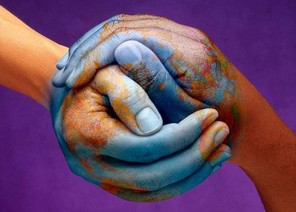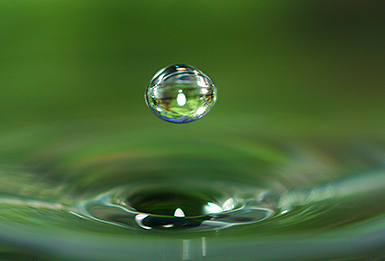
Acceptance and Commitment Therapy (ACT) is, at the core, about self and other kindness. Why do I say that. Let me try to explain.
When people speak of kindness and compassion (a word that literally means "to suffer with"), they often think of extraordinary people, those saints among us who seem to rise about the daily grind of life to comfort others. Other images may come to mind too, such as people who lack resolve or are weak, selflessly serving others to fill a void within.
My sense is that none of this is true about kindness and compassion. In fact, when we and others are hurting, the most difficult thing to do is to look within, instead of the natural inclination to pull away. Think about it. When you see suffering in others do you truly try to see that person's life and experience through their eyes and heart, or do we tend to turn away, or attempt to avoid the pain of that kind of connection in some way.
I say this because being kind and compassionate is a hard path, but also enormously powerful as an antidote to suffering. Many much wiser than I have noted that kindness and compassion begins with us. That is, we have to be kind and compassionate to ourselves before we can truly extend it to others. I think I know why that is.
To be kind to ourselves, means treating ourselves with gentleness, and the greatest of care. And, part of that means that we are willing to touch our pain, without turning away, avoiding, or trying to run based on old habits. We touch it as we might a hurting young child, or someone in need of care. To do that, means going into our hurts and not resisting or fighting with them. Struggle with our thoughts and feelings is warfare, and this is nothing more than unkindness with ourselves. Learning to just notice, acknowledge, and let go of our judgmental mind and emotional pain is kindness. No more struggle. No more fighting ourselves. We acknowledge we hurt and we take care of that hurt just as we might with a wound, or when holding a tiny infant.
If we can do that, then we are positioned to connect with other human beings who are suffering too. There is so much about our world that creates the illusion of separation. We differ in how we look, how we dress, height, weight, eye color, whether we can walk or are wheelchair bound, are young or old, rich or poor, live in a big house or small one, drive an expensive car or a beater, have a job, are homeless, have an education or struggle to live on a dollar a day. Yet, behind all of that is something basic we all share. We are all trying to make the most of this one precious life -- we hurt, we care, we have dreams, we struggle, and on and on.
If you can connect with that, then you will be faced with the sobering truth that you and not so different from me, and that you are not that different from other human beings on this planet. Inside, we are more alike than it may appear. When others hurt, it is a call to compassion. Yet. unless we can "suffer with" -- meaning are willing to touch and experience our pain with kindness -- it will be really hard to touch and connect with others who are hurting. Their pain is your pain, and will be just as hard to touch as the pain you may resist inside your mind and body. Our natural inclination in that situation is to withdraw, or perhaps share a superficial kindness motivated by avoidance -- "ACTs of charity that remove from view the source of despair and hurt that we contact."
I say all this, in part, to share some thoughts about how to break free from emotional pain and suffering. Practicing acceptance, mindful noticing, and defusion with your unpleasant thoughts and feelings (or any other form of sticky thought or feeling of discomfort) is one of the kindest things you can do. As you do that, it will give you space to live out your values, your dreams. And, it will position you to connect with other human beings just like you that are trying to do the best that they can with what they have. We all suffer and have the capacity for wholeness. But it begins with us.
Kindness and compassion are powerful antidotes to suffering, your own and that of others. The practice of kindness is something you can do. The more you practice, the more you weaken old habits of pulling away and getting mired in struggle/warfare. In short, when we stop resisting genuine aspects of our mental life and emotional experience, we are taking an important step toward kindness. When we act to live in accordance with our values and that which we hold dear, we are acting kindly too. The path is not easy. Yet, it just might offer you something different in your life. I know it has changed the way I see my pain and that of others.
With a Kind Heart
John P. Forsyth
Author of the Mindfulness & Acceptance Workbook for Anxiety (for the public), ACT on Life, Not on Anger (for the public), Your Life on Purpose (for the public) and Acceptance and Commitment Therapy for Anxiety Disorders: A Practitioner's Guide (professional/therapist book)
 RSS Feed
RSS Feed
